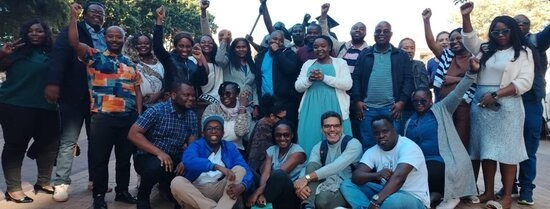What does it mean to be 'globally connected-locally embedded' in the context of knowledge politics within deeply unequal global circuits of knowledge production, attribution, circulation and use?
In this long-read, Professor Jun Borras describes the Writeshop series initiated by the Democratizing Knowledge Politics Initiative.

The relatively privileged condition of knowledge work in the Global North should always be understood in its inextricable relationship with the more precarious conditions of scholars and researchers in the Global South.
This is especially relevant to the fields of social sciences that pertain to some of the global burning issues in the world today related to land, food, animal feed, energy, climate and environment, biodiversity, labour and finance, where research often implicates the Global South, not in isolation from but in connection to the North.
Ideas and practice that advocate for academic knowledge with positive societal impact, such as inclusion and sustainability, should be understood as something that inherently requires efforts that produce societally relevant knowledge, but at the same time trying to democratize the very institutions of knowledge politics globally and locally.

DKPI Writeshops
This is the main objective of the Democratizing Knowledge Politics Initiative (DKPI) as part of the Erasmus Professors Programme, within which is a series of international Writeshops for early career scholars from the Global South towards the idea of helping build the conditions for engagement between scholars from the Global South and North based on the principle of equal footing. This can in turn contribute to giving broader meaning to the notion of 'globally connected-locally embedded' method of knowledge work for scholars based in different parts of the world.
In this longread, Jun Borras describes what the DKPI’s Writeshop series is.
